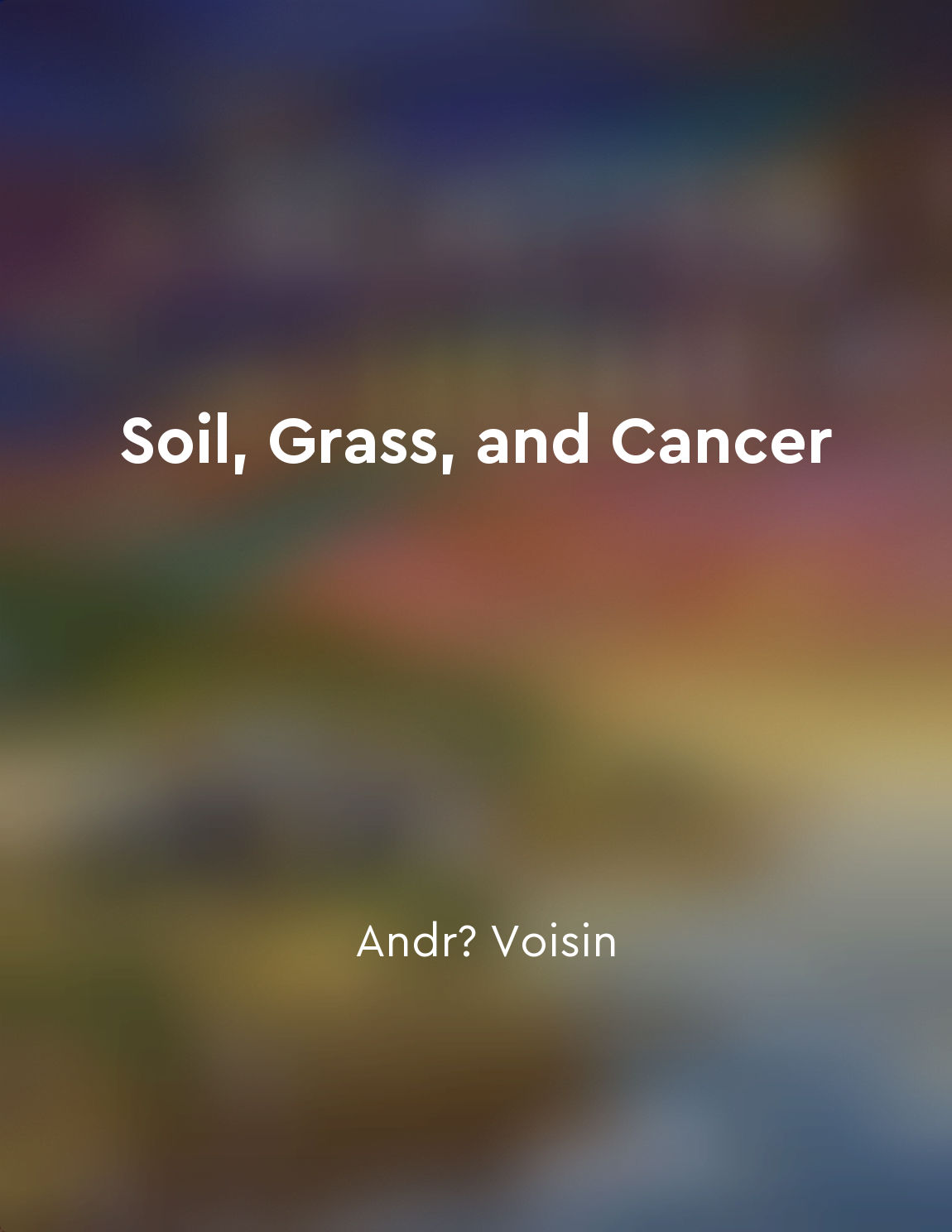Ecosystems are interconnected in ways we are only beginning to understand from "summary" of The Serengeti Rules by Sean B. Carroll
The intricate web of connections that underpins ecosystems is a complex and fascinating phenomenon. From the tiniest microbe to the largest predator, every organism plays a crucial role in maintaining the delicate balance of nature. These relationships extend far beyond what meets the eye, with each species influencing and depending on others in ways that are only beginning to be unravelled. It is like a giant puzzle, with each piece fitting together to create a beautiful and harmonious whole. The concept of interconnectedness in ecosystems is not limited to just the relationships between species. It also encompasses the physical environment in which these organisms live. Factors such as temperature, rainfall, and soil composition all have a significant impact on the health and stability of an ecosystem. Changes in one aspect of the environment can have far-reaching effects on the entire system, leading to a cascade of consequences that can be difficult to predict. One of the key insights that scientists have gained in recent years is the importance of keystone species in maintaining ecosystem stability. These are species that exert a disproportionately large influence on their environment relative to their abundance. By controlling the populations of other species or shaping the physical landscape, keystone species help to regulate the flow of energy and nutrients through an ecosystem. When these species are removed or their numbers decline, the entire system can be thrown into disarray. The implications of this interconnectedness go far beyond the boundaries of individual ecosystems. As human activities continue to alter the natural world at an unprecedented pace, the consequences of disrupting these delicate relationships are becoming increasingly clear. From deforestation to overfishing, the impacts of our actions reverberate through ecosystems in ways that are often difficult to predict. By gaining a better understanding of the intricate connections that bind ecosystems together, we can hope to mitigate the effects of our actions and preserve the beauty and diversity of the natural world for future generations.Similar Posts
Microbes can protect us from harmful pathogens
Microbes play a crucial role in maintaining our health by protecting us from harmful pathogens. These tiny organisms can act as...
The interconnectedness of life is fascinating
The intricate web of connections that thread through the living world is a source of endless fascination. Each organism, no mat...
Reintroducing species can help restore damaged ecosystems
Restoring damaged ecosystems can be a daunting task, but one approach that has shown promise is the reintroduction of key speci...
The decline of keystone species can have cascading effects
The decline of keystone species can set off a chain reaction in an ecosystem. Keystone species play a crucial role in maintaini...
Environmental degradation
Environmental degradation refers to the deterioration of the environment as a result of human activities. It encompasses a wide...
Education is key to promoting the importance of native plants
It is imperative that we recognize the essential role education plays in spreading awareness about the significance of native p...

Soil structure influences grass growth
The structure of the soil plays a crucial role in determining the growth of grass. It is not just a matter of the soil's fertil...
Imposing limits on consumption is vital
Imposing limits on consumption is vital. Throughout history, societies have faced the challenge of balancing their resource con...
Earth's history shows a connection between life and geology
Earth's history is a complex tapestry woven with intricate connections between life and geology. The story of our planet's evol...
By following these rules, we can help protect the world we live in
The rules of nature may seem complex and mysterious, but they are actually quite simple and straightforward. By understanding a...
